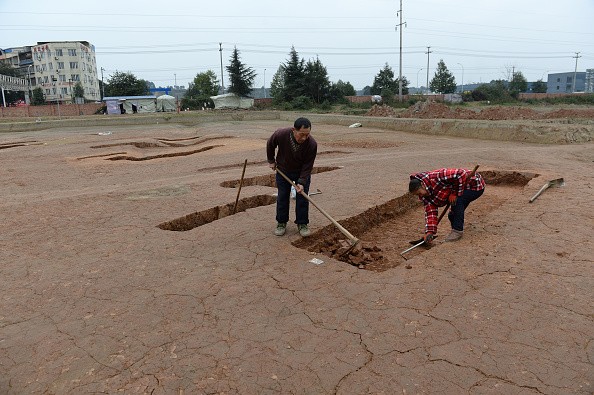Chinese archaeologists have unearthed 60 boat coffin tombs dating back 2,200 years at a construction site in Feihu Village, Pujiang County in China's southwestern Sichuan Province.
As of mid-January, workers with Chengdu Cultural Relics and Archaeology Institute have excavated 47 tombs, the institute said.
The site covers an area of 10,000 square meters and has four rows of tombs.
The site is a former cemetery believed to have been used by people of the Shu culture who may have operated nearby salt wells.
The discovery, which happened in September last year, will shed light on the ancient indigenous Shu culture. The tombs also contain elements of the Chu and Qin cultures. Pujiang County was part of the Shu Kingdom.
The boat-shaped coffins are 4 to 7 meters long and date back to the late Warring States Period (475-221 B.C.) and the Qin Dynasty (221-206 B.C.). These are made of nanmu, a rare wood that comes from evergreen trees, that were was used to construct boats.
According to Gong Yangmin of the Chengdu Cultural Relics and Archaeology Institute, head of the excavation team, workers also uncovered more than 300 pieces of artifacts that include bronze, iron, pottery, bamboo, coins, weapons, coins and 11 seals.
In one of the two well-preserved tombs, workers found items attached to the waist of dead bodies that include 10 bamboo baskets of grain and a delicate string of glass beads, revealing a high status.
Gong noted that glass beads were exotic at the time and were probably imported via the Silk Road. Archaeologists also noted that as there are ruins of salt wells nearby, the dead were possibly salt administration officials.
Since there are already seven occasions that boat coffins were discovered in Pujiang, construction work at the site has been suspended with plans to build a museum there.






















